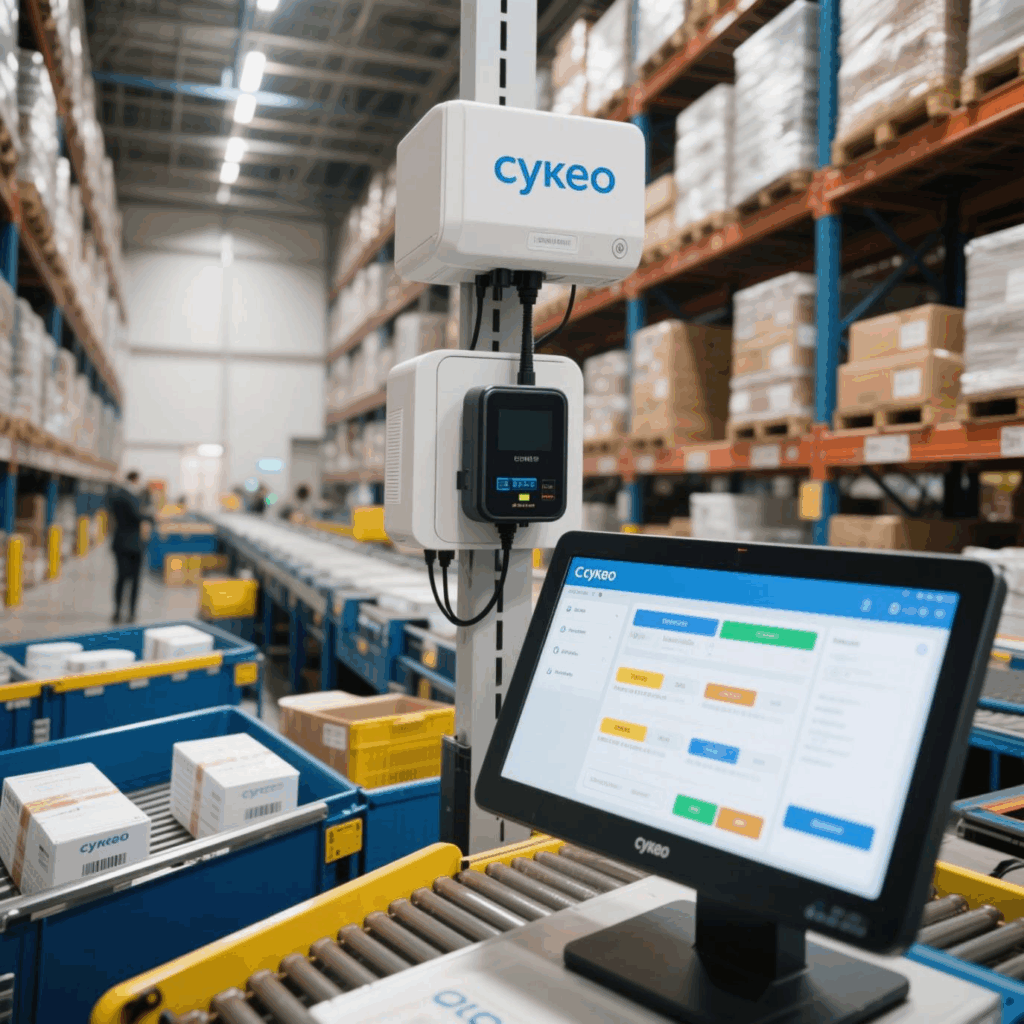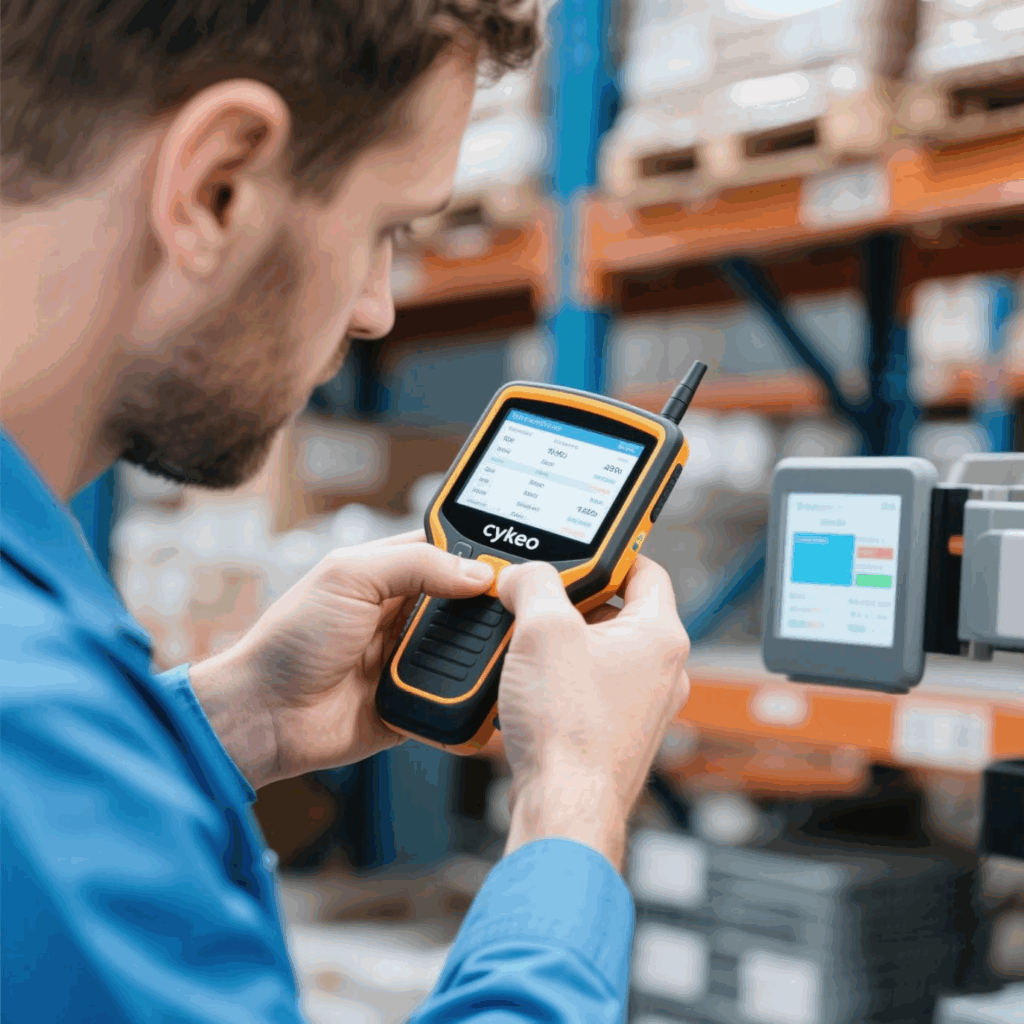How to Choose a Handheld RFID Scanner for Warehouse Operations?
530Discover how to select the best handheld RFID scanner for warehouse efficiency. Learn key features, durability needs, and why Cykeo leads in industrial RFID solutions.
MoreAll RFID Product
The traditional barcode-based management model is inefficient and prone to errors, making it difficult to meet the demands of high-frequency inbound and outbound operations and dynamic inventory checks in modern warehousing. Inventory RFID tags, with features such as contactless identification, batch reading, and strong anti-interference capabilities, have become a standard technology in enterprise digital transformation. This article will provide an in-depth analysis of inventory RFID tag technology and its applications, and introduce how Cykeo UHF RFID readers enhance warehouse management processes.
RFID (Radio Frequency Identification) is a technology that uses radio waves to identify specific targets and read/write associated data. Inventory RFID tags are composed of coupling components and a chip, with each tag carrying a unique electronic code—essentially serving as a “digital ID” for goods. During operation, the tag receives radio signals emitted by a reader through its antenna and uses the energy induced by the current to transmit the product information stored in the chip, enabling automated identification and data capture of goods.
Based on operating frequency, RFID tags can be classified into Low Frequency (LF), High Frequency (HF), Ultra High Frequency (UHF), and Microwave (MW). In warehouse management scenarios, UHF RFID tags stand out due to their long reading range (exceeding 10 meters), batch reading capability (hundreds of tags per second), and strong penetration. Operating in the 902–928 MHz frequency band, UHF tags can penetrate common warehouse materials such as cardboard boxes and plastic packaging, enabling accurate reading of product data and significantly improving inventory management efficiency.
Efficient Reading: Breaking Through Traditional Management Limitations
Ultra-high frequency (UHF) RFID readers activate tags by emitting radio frequency signals and receive the modulated signals returned by the tags to decode the data. The Cykeo UHF RFID reader is equipped with the Impinj R2000 chip, which offers industry-leading sensitivity and data processing capabilities, enabling fast and accurate tag recognition. Combined with multi-antenna array technology, the reader can achieve 360-degree signal coverage, eliminating blind spots in identification. Whether managing palletized goods during inbound and outbound operations or conducting inventory checks of scattered items on shelves, the Cykeo reader can read hundreds or even thousands of tags in just a few seconds—improving efficiency by dozens of times compared to manual scanning.

End-to-End Tracking: Enabling Visualized Inventory Management
The tracking function of RFID tags relies on the collaboration between the Warehouse Management System (WMS) and a network of RFID readers. Once goods are tagged, RFID readers at each stage—from inbound registration and in-warehouse movement to outbound shipping—collect tag data in real time and upload it to the WMS. Through system-level data processing and algorithms, managers can clearly view the location, status, and movement history of goods in the backend, achieving full lifecycle visualization of inventory. When goods are abnormally moved or left idle, the system automatically triggers alerts, enabling enterprises to promptly adjust warehousing strategies and avoid issues such as misdelivery or omissions.
Zero-Delay Inbound Inspection
When goods arrive at the warehouse, forklift drivers do not need to stop. By simply driving the goods past Cykeo’s UHF RFID readers installed at the entry points, the system can verify the information of the entire pallet and complete the inbound registration within 3 seconds. The system automatically matches the goods information with the purchase order, and immediately triggers an alert in case of discrepancies. This significantly shortens inbound processing time and reduces errors caused by manual checks.
Accurate Inventory Counting
Traditional manual inventory counting requires substantial manpower and time, and is prone to omissions and errors. With RFID technology, staff can carry Cykeo handheld reader and quickly move through shelves to complete inventory counting of all items in an area. The system automatically generates an inventory report and compares it with the database records, clearly highlighting discrepancies. A full warehouse count that used to take days can now be completed in just a few hours or even minutes, greatly improving the accuracy and timeliness of inventory data.
Dynamic Sorting: Intelligent Enhancement of Shipping Efficiency
During the order sorting process, Cykeo RFID readers are deployed in sorting channels and shipping exits to monitor the flow of goods in real time. When RFID-tagged goods pass by, the reader quickly identifies them and matches them with the order information, guiding sorting personnel to place items in the correct area. In the event of a mispick, the system immediately issues an audible and visual alert, ensuring near 100% sorting accuracy. This significantly boosts shipping efficiency and reduces customer complaints.
The reason Cykeo UHF RFID readers can operate stably and efficiently in complex warehouse environments lies in their core technological advantages. Integrated with the Impinj R2000 chip, they possess powerful signal processing and anti-interference capabilities, ensuring accurate identification even in metal-dense and electromagnetically noisy warehouse settings. The adoption of multi-antenna array technology further expands signal coverage, enabling blind-spot-free reading.

In addition, Cykeo readers support various communication interfaces such as RS232, RS485, and Ethernet, allowing seamless integration with a wide range of WMS and ERP systems, demonstrating excellent compatibility. Whether in large-scale automated high-bay warehouses or traditional storage environments of small and medium-sized enterprises, Cykeo readers can be flexibly deployed to meet diverse RFID application needs. Covering the full process from inbound, storage, to outbound management, Cykeo leverages technological innovation to help enterprises build intelligent and highly efficient warehouse management systems.
Discover how to select the best handheld RFID scanner for warehouse efficiency. Learn key features, durability needs, and why Cykeo leads in industrial RFID solutions.
MoreDiscover how RFID for tool tracking eliminates FOD risks, cuts manual errors by 85%, and ensures compliance in high-stakes industries. Cykeo’s rugged solutions tested in Singaporean MRO hubs.
MoreRFID multiple tag reading tested: Discover real-world speeds, interference solutions, and how Cykeo users scan pallets in seconds. No hype - just warehouse results.
MoreCykeo RFID Library Management System Enhancing Management Efficiency
More